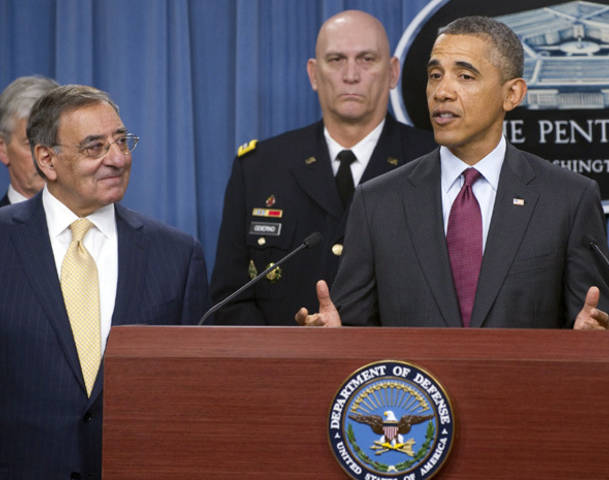
The US has left Iraq and is winding down its war in Afghanistan. The current timetable for the Afghanistan withdrawal calls for repatriation of NATO troops by then end of 2014. Public outcry, while generals and politicians insist they are winning, calls for an earlier withdrawal. Whether politicians will listen to the public remains to be seen.
The Pentagon, which has already been faced with a $500 billion budget cut, may see more of its piece of the pie sliced with the impending resolution of the fiscal cliff. With both sides apparently at odds on how to slice entitlement programs, introduce tax reform and how to create more revenue, there is a lot of uncertainty on how those negotiations will play out. The Pentagon, for its part, is planning a strategy of a more compact military that relies more on naval and air assets to assert its power. This has left many in the US Army pondering how that branch of the service will fare. It goes without saying that besides the fact that reserves will revert to their traditional role, there will be a significant cut to ground forces personnnel.
The Cost of Two Wars on the US Army
Lenghty wars in Iraq and Afghanistan have left a heavy toll on the US Army. More than 6,000 soldiers have been killed and tens of thousands have been wounded. Add to that the toll on the mental health of soldiers and the countless marriages that have been ruined due to multiple tours and it should be no surprise that suicides among veterans and active-duty personnel are among the highest they have been in recent history.
With the transition to a peacetime army, there is also a return to a more rigid army. While the effects will be nowhere near those that existed in the early 1970s after the Vietnam War, there will be similar problems to a lesser extend. According to the Washington Post, Sgt. Maj. Raymond F. Chandler III, the Army’s top enlisted soldier, has traveled to US Army post extensively this year to spread the message, “We’ve allowed ourselves to get out of control.”
His message gives notice that he intends to get tougher with existing regulations that specify how and with what a soldier can appear in public. Some in the Army are not exactly embracing his message and are reluctant to embrace change and the transition to a peacetime mode. Some officers are worried about the Army and fear that it doesn’t know what it is doing. While some acknowledge that there have been budget cuts and that the numbers have gone down after past conflicts, they also know that it has never happened while the conflict was ongoing.
Add to that the recent events of the resignation of Gen. David Petraeus as CIA director and the investigation of Gen. John Allen, the Army’s top man in Afghanistan, and demoralization of the army is complete. Junior officers and senior enlisted personnel have been burdened with big resonsibilities that included running of whole cities and of course caring for their men and women. Stateside service with less responsibility may easily bore them, which will become a retention problem when their contracts expire.
One mid-level sergeant at Fort Bragg, N.C., recently complained that he watched several junior soldiers get yelled at for donning Army-issued fleece hats on a cold morning when they were supposed to be wearing baseball-style patrol caps. “It’s cold. They are cold. Let them wear what they want,” the sergeant said. “But it is not the published standard, so everybody gets a butt-chewing. We have defaulted back to before 9/11.” Washington Post
With involvement in Afghanistan ongoing, the US Army has not clearly stated a new direction other than a new compact force, which is jack of all trades and master of none. It sees the army reorganized into a number of combat brigades with regional responsibilities. Those who have been in combat will be frustrated without the prospect of a clear mission. The army will struggle as the reorganization moves ahead. It’s task will be a clear mission and to get junior leaders, the leaders of the future, on its side.




